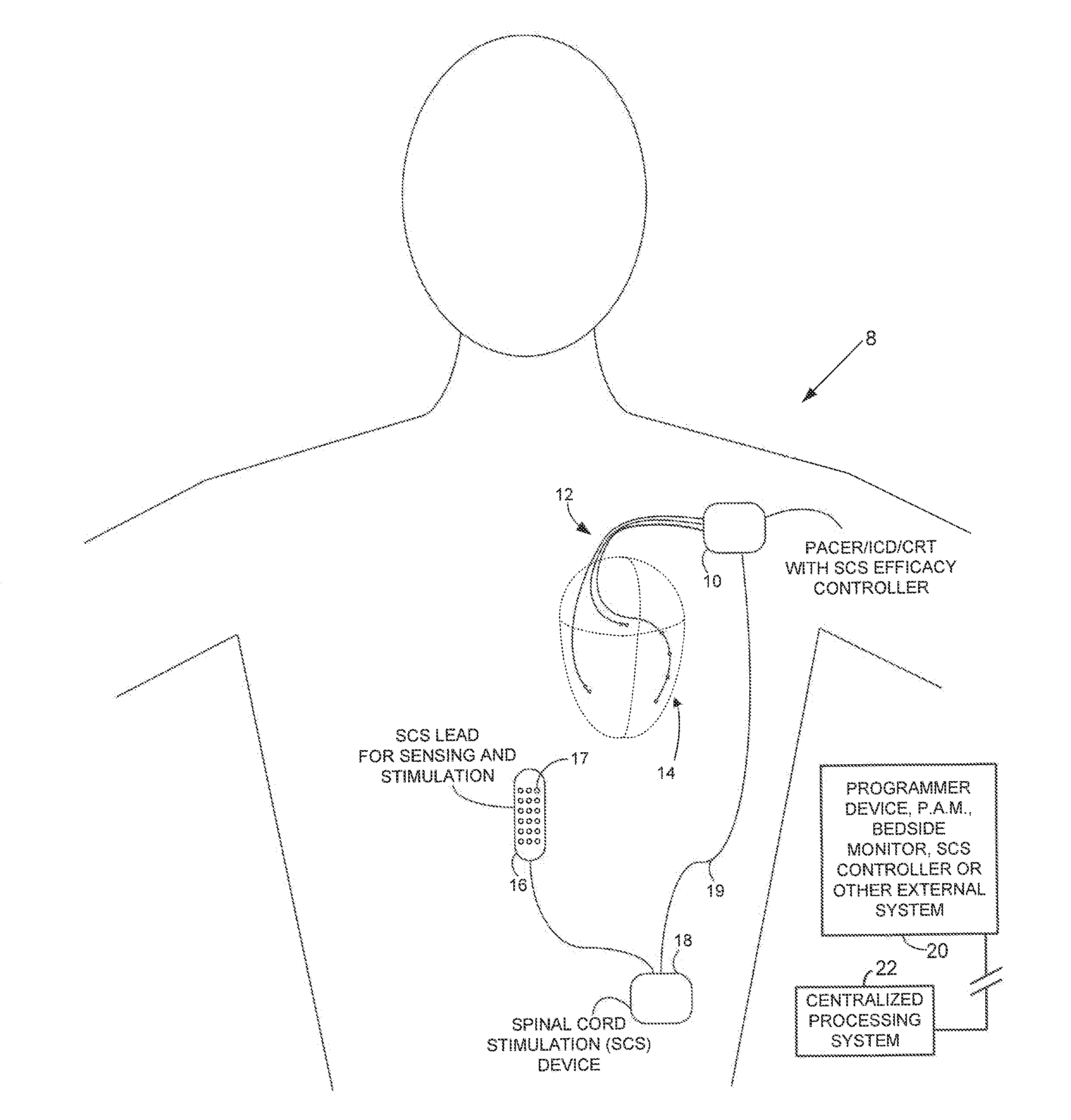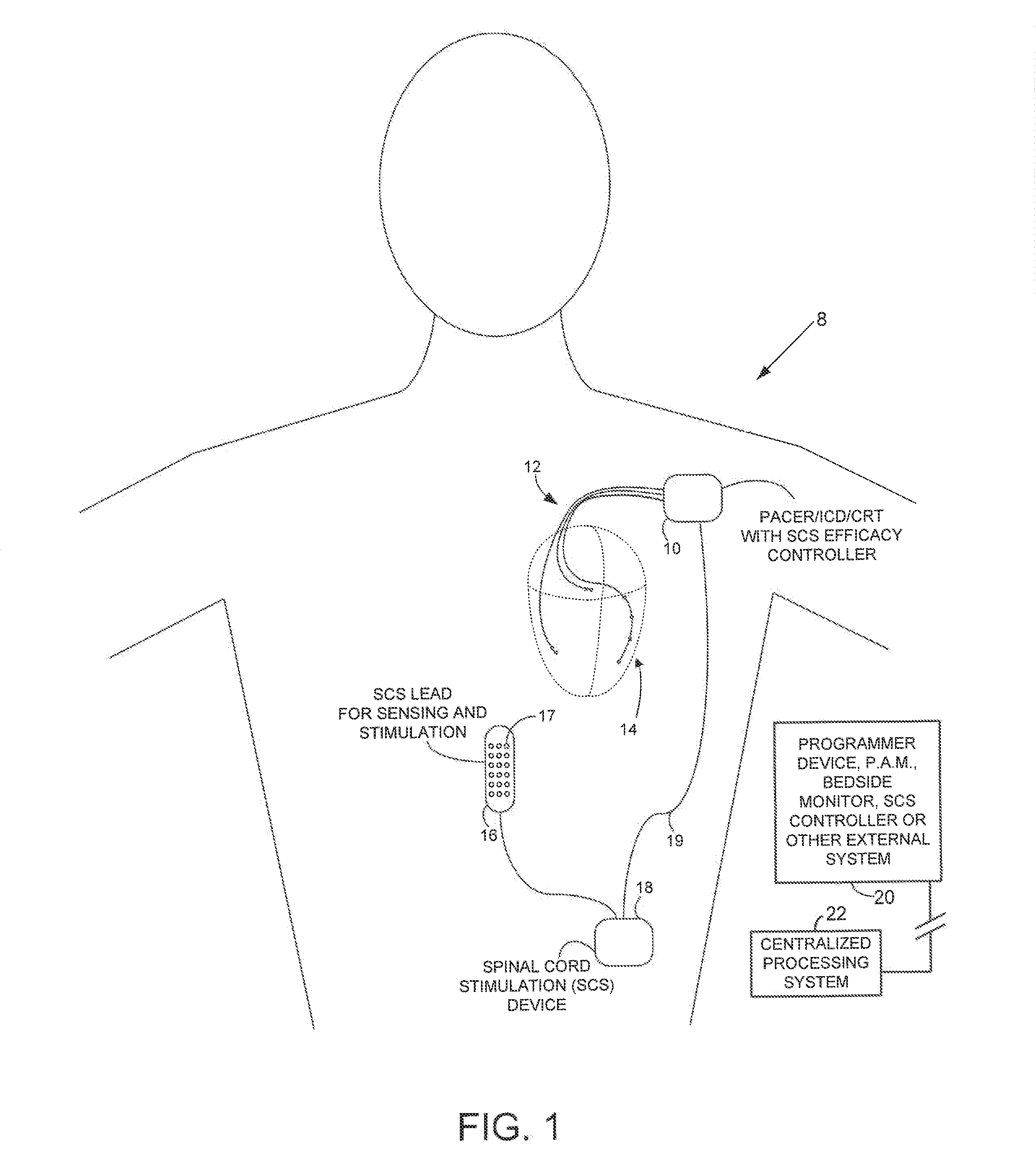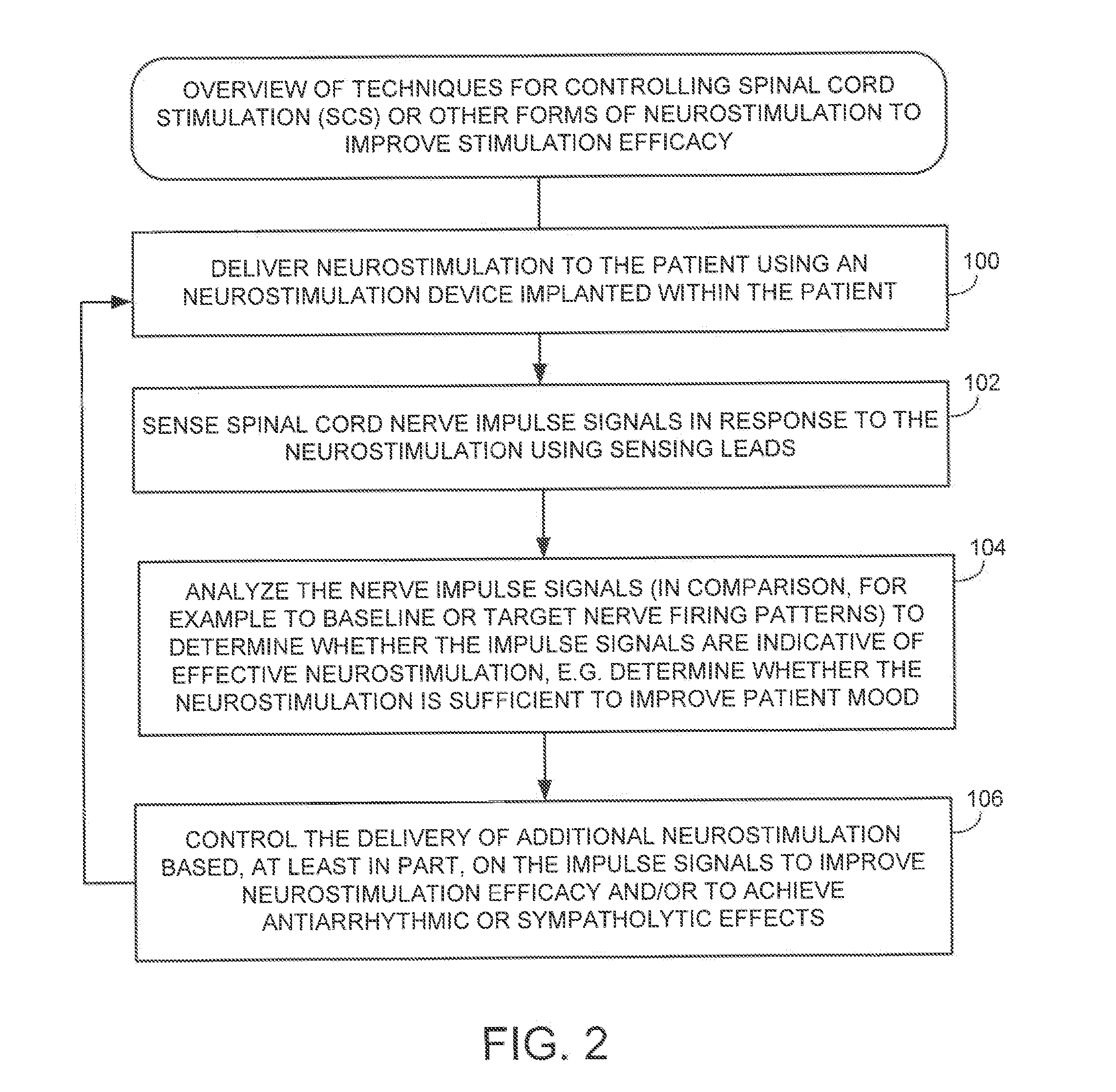Systems and methods for controlling spinal cord stimulation to improve stimulation efficacy for use by implantable medical devices
a technology of spinal cord stimulation and spinal cord, applied in the field of implantable medical devices, can solve problems such as known ineffectiveness, and achieve the effects of improving neurostimulation efficacy, reducing pain, and improving stimulation efficacy
- Summary
- Abstract
- Description
- Claims
- Application Information
AI Technical Summary
Benefits of technology
Problems solved by technology
Method used
Image
Examples
Embodiment Construction
[0022]The following description includes the best mode presently contemplated for practicing the invention. This description is not to be taken in a limiting sense but is made merely to describe general principles of the invention. The scope of the invention should be ascertained with reference to the issued claims. In the description of the invention that follows, like numerals or reference designators are used to refer to like parts or elements throughout.
Overview of Implantable System
[0023]FIG. 1 illustrates an implantable medical system 8 having a pacemaker, ICD, CRT or other CRM device 10 equipped to adaptively control SCS or other forms of neurostimulation to improve stimulation efficacy. Herein, for brevity, device 10 will simply be referred to as a pacer / ICD. Control of neurostimulation may be achieved based on an analysis of spinal cord nerve impulse firing parameters, HRV PSD patterns or other suitable parameters. HRV may be assessed based on IEGM signals obtained via a se...
PUM
 Login to View More
Login to View More Abstract
Description
Claims
Application Information
 Login to View More
Login to View More - R&D
- Intellectual Property
- Life Sciences
- Materials
- Tech Scout
- Unparalleled Data Quality
- Higher Quality Content
- 60% Fewer Hallucinations
Browse by: Latest US Patents, China's latest patents, Technical Efficacy Thesaurus, Application Domain, Technology Topic, Popular Technical Reports.
© 2025 PatSnap. All rights reserved.Legal|Privacy policy|Modern Slavery Act Transparency Statement|Sitemap|About US| Contact US: help@patsnap.com



